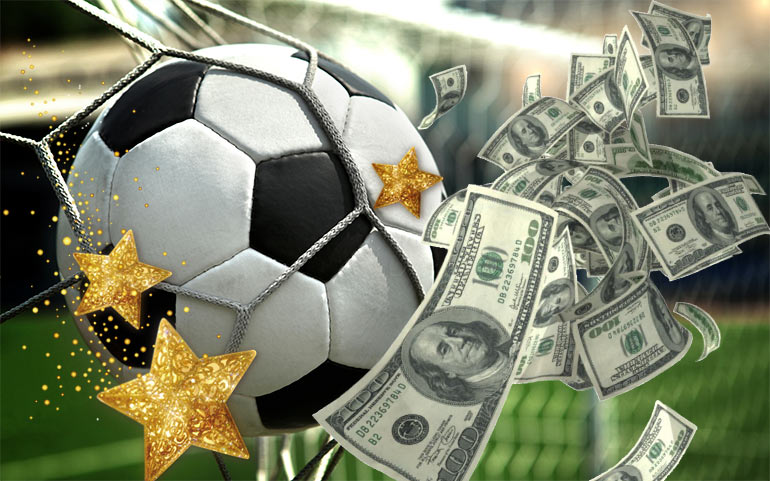The mathematics of betting on football and other sports: how to beat a bookmaker using algorithms
Math in betting increases your chances of success, but does not guarantee profit. Let’s analyze the margin, coefficients and mathematical strategies of sports betting. And also answer the main question: how to beat the bookmaker.
![]()
Bookmaker’s margin and coefficient
Margin is the commission that the bookmaker puts into the odds.
The coefficient is the probability of an event taking into account the bookmaker’s margin. The coefficient is needed to calculate sports betting.
Calculate the possible payout on the bet using the formula:
(bet amount) X (coefficient).
For example, in a football match “Liverpool— – “Manchester United”, the coefficient for the victory of the hosts is 1.90, and the bet amount is $ 1,000. If Liverpool is successful, the payout will be $1,900: 1,000 X 1.90.
A bookmaker may incur losses based on the results of one match, but because of the margin, bookmakers are in the black at the distance.
Calculate the margin using the formula:
(1/K1 + 1/K2 + … + 1/Kp – 1) X 100, where n is the number of choices in one market, and K1, K2, …, Kn are the coefficients for each choice.
For example, in the hockey match Russia — Canada, the bookmaker set the following coefficients for the result of the main time:
Russia’s victory in 3.70.
Draw in 4.30.
Canada’s victory in 1.80.
We consider the margin:
(1/3.70 + 1/4.30 + 1/1.80 — 1) X 100 = 5.84%.

Mathematical strategies for sports betting
Mathematical strategy in betting is the rules of the game bank management formulated by the players of betting shops.
Use one or more mathematical betting strategies. Consider three of them:
Martingale strategy.
The Martingale strategy is a strategy of doubling the bet amount after each subsequent loss. You need to bet on a coefficient of 2.00.
The first run will cover the previous failures and bring a profit equal to the amount of the first bet. This strategy is also called a catch-up.
Make the first bet for no more than 1-2% of the bank.
Ladder strategy.
A ladder is a strategy in which the size of each next bet in the case of a call is equal to the payout of the previous bet before the end of the cycle.
You plan your profit in advance. Start a new cycle after failure or achieving the desired result.
The strategy of Oscar Grind.
The Oscar Grind strategy is a strategy by which you keep the bet size when you lose and double it when you enter before the cycle closes.
The amount of the first bet is equal to the desired profit. Start a new cycle after achieving the result. Bet with a coefficient of 2.00.
Forks in sports betting
A fork is an opportunity to place bets on different selections of the same event and be guaranteed to make a profit in any outcome.
Calculate the fork by the formula:
Sp = 1 / K1 + 1 / K2 + … + 1 / Kp, where Sp is the sum of probabilities, n is the number of choices in one market, and K1, K2, …, Kn are the coefficients for each choice.
If Sp<1, then you have found a fork.
For example, in the Barcelona — Juventus football match, Bookmaker “A” gives a bet on the victory of the hosts for a coefficient of 2.10, and Bookmaker “B” offers 3.90 for a draw and 4.50 for the success of the guests.
We consider the sum of probabilities:
1/2.10 + 1/3.90 + 1/4.50 = 0.9548.
Sp<1, we have a fork in front of us.
With bets of $1,000 on Barcelona, $540 on a draw and $460 on Juventus, the total amount of bets will be $ 2,000.
The payout in case of success of the hosts will be $ 2100: 1000 x 2.10. With a draw, $ 2106: 540 x 3.90. With the victory of the guests, $ 2070: 460 x 4.50. You will make a profit at any outcome of the match.
There is one mathematically betting algorithm that allows you to beat the bookmaker:
- Find the fork.
- Distribute the bet amounts so as to make a profit in any outcome.
Math in betting increases your chances in the bookmaker’s game. Use math to make a profit. But be careful. Bookmakers can limit the size of the maximum bet to players on forks, and other strategies do not guarantee a win.
